Enhancing more sustainable actions with Nestlé Vietnam
Nestlé Vietnam has been recognised as the most sustainable business in Vietnam in the manufacturing sector for the last two years. Could you shed some light on this recognition?
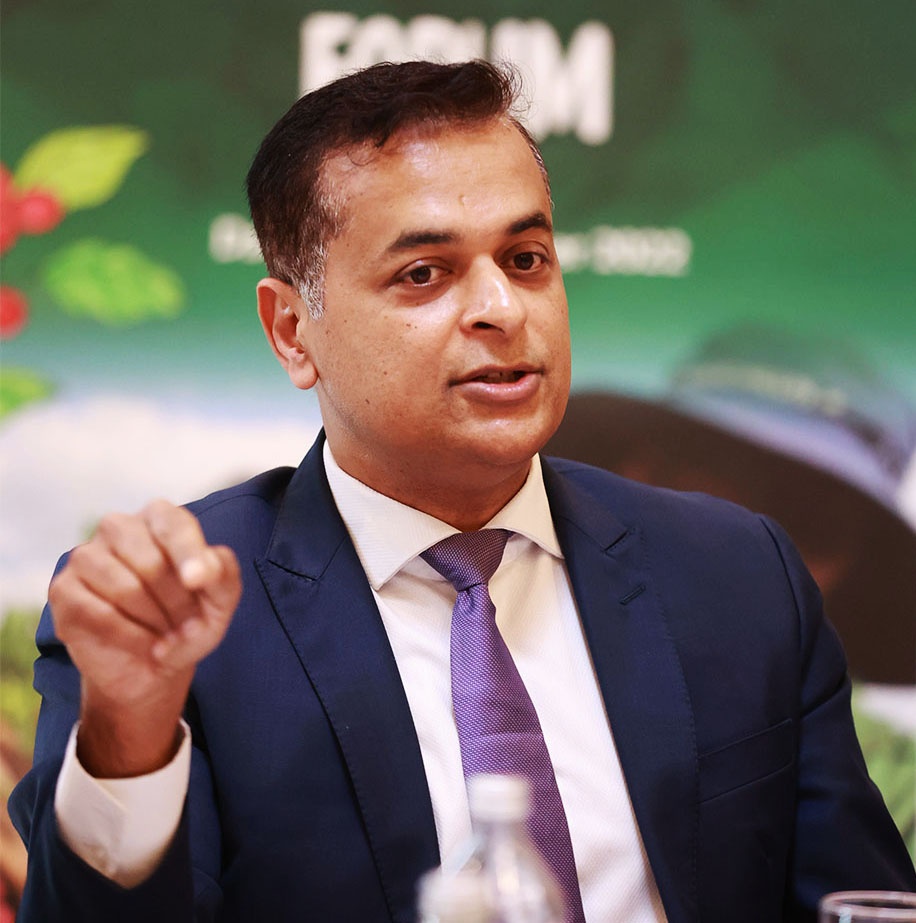 |
| Managing director Binu Jacob |
Nestlé Vietnam has been committed to long-term investment and sustainable development in Vietnam for more than three decades. From the senior leadership to every single employee, we are all urged by our passion to contribute to the development of society and communities and protect the environment for now and future generations. That’s why creating shared value is at the heart of everything we do.
We are extremely proud to have been named Vietnam’s most sustainable company two years in a row, and to have ranked in the top three for four years in a row by the CSI Programme. To achieve this recognition, Nestlé Vietnam met the CSI Sustainability Index with 130 indicators, of which 68 per cent were related to mandatory legal compliance requirements, and the remainder were indicators related to sustainable business initiatives.
The recognition is a testament to our efforts in fulfilling our commitment to long-term investment and the sustainable development of Vietnam. It means that we are on the right track in our journey towards sustainable development.
What is the key focus area of Nestlé Vietnam’s sustainable development strategies in the coming time?
We believe in the power of food to enhance quality of life. This belief fuels our commitment to use our global scale, resources, and expertise to contribute to a healthier future for people and the planet.
In Vietnam, Nestlé implements action programmes to minimise negative impacts on the environment, while contributing to the conservation and regeneration of the environment and natural resources for present and future generations.
We focus on the pillars of climate action, sustainable packaging, sustainable sourcing, and caring for water. These priorities are intended to realise the group’s ambition to achieve net-zero greenhouse gas emissions by 2050.
One of the most important things we are doing is introducing the concept of regenerative agriculture – an initiative to help address climate change and support communities and natural resources. Regenerative agriculture can bring enormous benefits, including improving soil health and soil fertility, as well as protecting water resources and biodiversity.
Regenerative farming practices can restore soil health, help draw down and capture increased levels of carbon in soils and plant biomass. As a result, healthier soils are also more resilient to the impacts of climate change and can increase yields, improving farmers’ livelihoods.
We also led different initiatives to promote sustainable development in production. Since 2015, all of our sites have achieved zero waste-to-landfill thanks to the circular economy model. Nearly 95 per cent of our packaging is designed to be recycled. Meanwhile, our packaging initiatives help reduce nearly 2,000 tonnes of virgin plastic per year.
| "We have trained nearly 300 farmer group leaders who have both technical and economic knowledge to promote the NESCAFÉ Plan. Thanks to these efforts, we can embark on the implementation of regenerative agriculture in Vietnam." |
Could you share some best practices to encourage other partners in the supply chain to achieve sustainable development?
The NESCAFÉ Plan project is one of the typical examples highlighting our best practices in sustainable development. Through the plan, we have actively promoted a multi-stakeholder partnership, including the Western Highlands Agriculture and Forestry Science Institute, the government, the Ministry of Agriculture and Rural Development, public-private partnership programmes, and all other parties to implement this project.
With a farmer-centric approach, the NESCAFÉ Plan has helped 21,000 farmers earn 4C international coffee certificates, and 15,000 farmers have benefited from the distribution of plantlets over the past decade.
Not only did we introduce good agricultural practices in the form of GAP and NBFP certification, but we also trained 260,000 farmers to implement these practice on their farms, with an application rate of around 80 per cent. Furthermore, the project contributes to a 40 per cent reduction in integrated water and a 20 per cent reduction in chemical fertilisers and pesticides.
In addition, we have also trained nearly 300 farmer group leaders who have both technical and economic knowledge to promote the NESCAFÉ Plan. Thanks to these efforts, we can embark on the implementation of regenerative agriculture in Vietnam with proper intercropping methods, integrated weed management, and integrated water reduction.
Vietnam is trying to promote gender equality and empowering women as part of al overall sustainability strategy. What has Nestlé Vietnam been doing to work with the government towards this goal?
Since our inception in Vietnam with the goal of promoting sustainable development, we have been determined to enhance women’s empowerment and gender equality.
For example, we have a strategic cooperation agreement with the Vietnam Women’s Union to implement a nationwide programme named ‘Nestlé accompanies women’ over the past few years. The programme has had many positive outcomes and was implemented in 20 provinces and cities.
The programme provided training on nutrition, soft skills, and on building a happy and healthy lifestyle to 8,000 women, while helping 1.2 million households access knowledge about nutrition. About 3,000 members have received support from the programme to start and retain sustainable livelihood models.
The success of the programme since 2020 has laid a strong foundation for our cooperation activities. Nestlé Vietnam and the Women’s Union have recently expanded the cooperation so that it will continue to 2027 to support women, especially those in rural areas, to develop comprehensively in digital transformation.
Over the next five years, the two sides will also focus on building capacity for women and Women’s Union staff at all levels and carrying out humanitarian and social charity activities.
What are your recommendations for the business community to pursue sustainable development initiatives?
Nestlé Vietnam believes that sustainable development is not only something that should be done, but also something businesses need to do if they can afford it. This is also what businesses must do if they want to be successful. Thus, they should jump on the bandwagon as soon as possible.
Regardless of the size or resources of the business, business leaders must have faith and commit to acting to create value and bring good things to society.
Businesses need to have specific sustainability commitments based on the characteristics of their industries, operating models, and priorities. In addition, businesses need to build a specific roadmap with sets of goals and metrics to track the implementation and completion of goals and commitments.
There are positive signs, and more and more businesses are paying more attention to sustainable development. There are more opportunities for businesses to share and learn from each other.
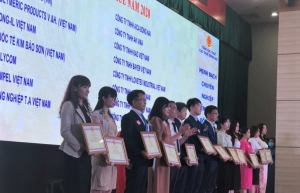 | Nestlé Vietnam among nation's largest corporate taxpayers Despite the challenges caused by the pandemic, Nestlé Vietnam has constantly made efforts to maintain its business continuity and became one of the 100 largest corporate taxpayers in Vietnam in 2021, according to Official Letter No.3786/TCT-KK from the General Department of Taxation (GDT) under the Ministry of Finance. |
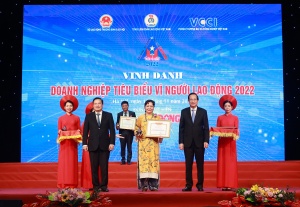 | Nestlé Vietnam recognised as Typical Enterprise for Labour for third year By constantly investing in human resource development and creating value for employees, Nestlé Vietnam is the only foreign-invested enterprise in the fast-moving consumer goods (FMCG) sector to be ranked as a Typical Enterprise for Labour by the Ministry of Labour, Invalids and Social Affairs in 2022. |
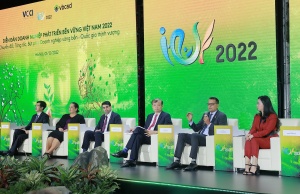 | Nestlé again voted most sustainable business in Vietnam Nestlé Vietnam has again been named the most sustainable business in Vietnam in the manufacturing sector. The recognition was unveiled at the ceremony announcing the Sustainable Companies in 2022 by the Vietnam Business Council for Sustainable Development and the Vietnam Chamber of Commerce and Industry on December 1. |
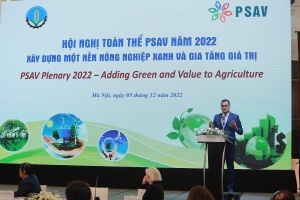 | Nestlé Vietnam enters multi-stakeholder partnerships in green agriculture Nestlé has partnered with stakeholders to promote regenerative agriculture in Vietnam and contribute to the development of green, sustainable, and low-carbon agriculture. |
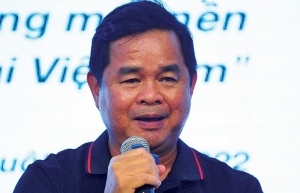 | Nestlé’s best practices in regenerative agriculture The introduction of regenerative farming methods needs to be promoted. Pham Phu Ngoc, Agro Service manager at Nestlé Vietnam, writes about how this must include biodiversity enhancement, soil and water conservation, and livestock integration. |
What the stars mean:
★ Poor ★ ★ Promising ★★★ Good ★★★★ Very good ★★★★★ Exceptional
Related Contents
Latest News
More News
- Masan Consumer names new deputy CEO to drive foods and beverages growth (February 23, 2026 | 20:52)
- Myriad risks ahead, but ones Vietnam can confront (February 20, 2026 | 15:02)
- Vietnam making the leap into AI and semiconductors (February 20, 2026 | 09:37)
- Funding must be activated for semiconductor success (February 20, 2026 | 09:20)
- Resilience as new benchmark for smarter infrastructure (February 19, 2026 | 20:35)
- A golden time to shine within ASEAN (February 19, 2026 | 20:22)
- Vietnam’s pivotal year for advancing sustainability (February 19, 2026 | 08:44)
- Strengthening the core role of industry and trade (February 19, 2026 | 08:35)
- Future orientations for healthcare improvements (February 19, 2026 | 08:29)
- Infrastructure orientations suitable for a new chapter (February 19, 2026 | 08:15)

 Tag:
Tag:



















 Mobile Version
Mobile Version